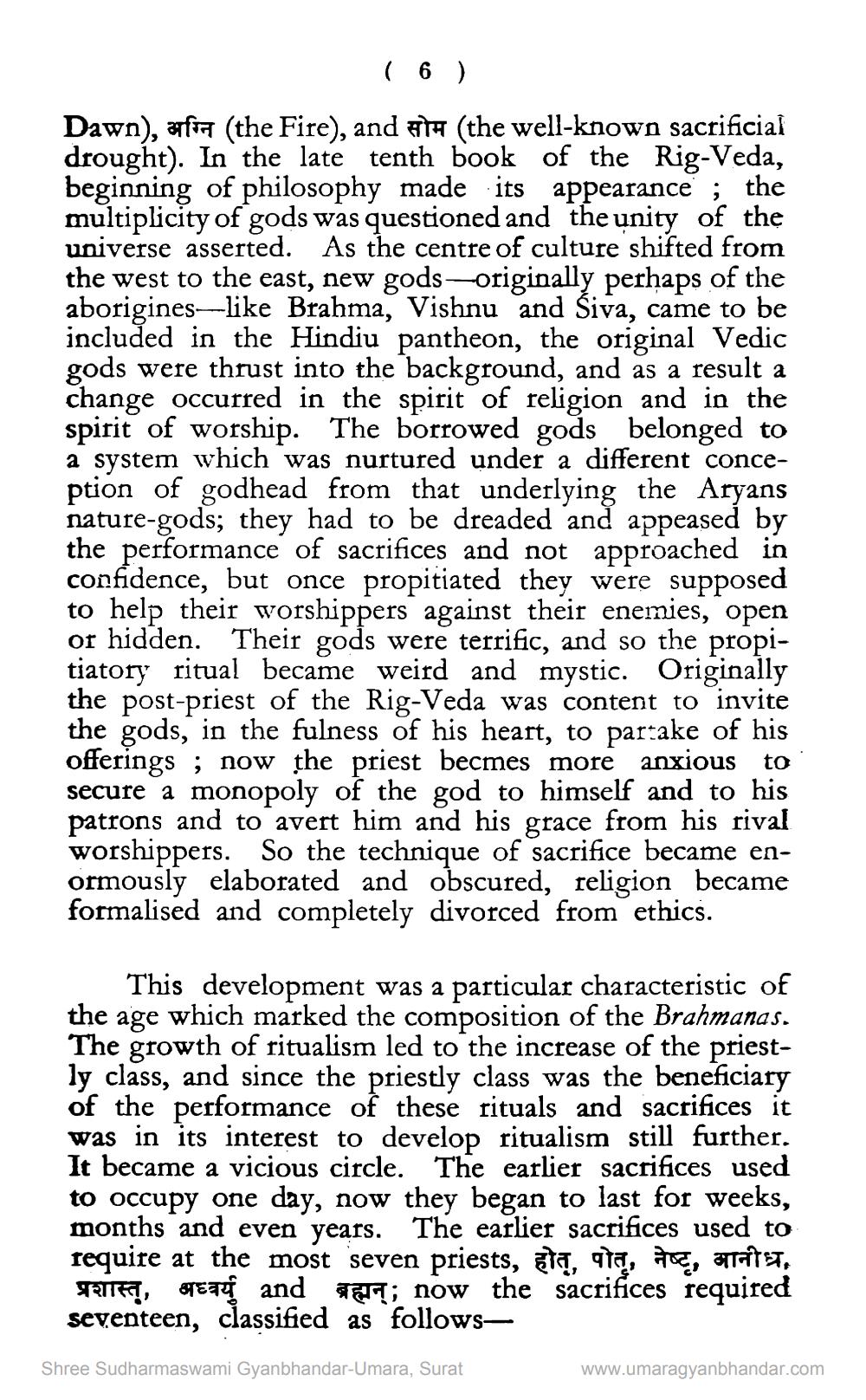________________
( 6
)
Dawn), afra (the Fire), and TTH (the well-known sacrificial drought). In the late tenth book of the Rig Veda, beginning of philosophy made its appearance ; the multiplicity of gods was questioned and the unity of the universe asserted. As the centre of culture shifted from the west to the east, new gods-originally perhaps of the aborigines—like Brahma, Vishnu and Siva, came to be included in the Hindiu pantheon, the original Vedic gods were thrust into the background, and as a result a change occurred in the spirit of religion and in the spirit of worship. The borrowed gods belonged to a system which was nurtured under a different conception of godhead from that underlying the Aryans nature-gods; they had to be dreaded and appeased by the performance of sacrifices and not approached in confidence, but once propitiated they were supposed to help their worshippers against their enemies, open or hidden. Their gods were terrific, and so the propitiatory ritual became weird and mystic. Originally the post-priest of the Rig-Veda was content to invite the gods, in the fulness of his heart, to partake of his offerings ; now the priest becmes more anxious to secure a monopoly of the god to himself and to his patrons and to avert him and his grace from his rival worshippers. So the technique of sacrifice became enormously elaborated and obscured, religion became formalised and completely divorced from ethics.
This development was a particular characteristic of the age which marked the composition of the Brahmanas. The growth of ritualism led to the increase of the priestly class, and since the priestly class was the beneficiary of the performance of these rituals and sacrifices it was in its interest to develop ritualism still further. It became a vicious circle. The earlier sacrifices used to occupy one day, now they began to last for weeks, months and even years. The earlier sacrifices used to require at the most seven priests, ta, ata, pe, Tits, प्रशास्त, अध्वर्यु and ब्रह्मन् ; now the sacrifices required seventeen, classified as follows
Shree Sudharmaswami Gyanbhandar-Umara, Surat
www.umaragyanbhandar.com




